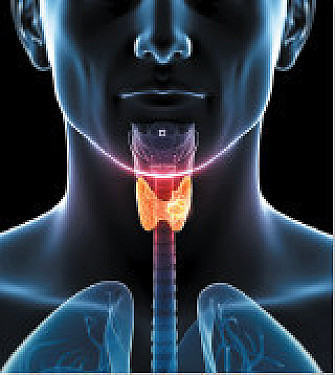Don't wanna be here? Send us removal request.
Text
Digestive Issues: Understanding, Managing, and Preventing Common Problems

Introduction Digestive issues are a common ailment affecting millions globally, impacting daily life and overall health. This comprehensive guide explores their nature, causes, types, and management strategies to aid those suffering and enhance their quality of life.
Understanding Digestive Issues
2.1 What are Digestive Issues? Digestive issues encompass a variety of disorders affecting the gastrointestinal (GI) tract, from the esophagus to the colon. Symptoms can range from mild discomfort to severe pain, affecting both physical health and emotional well-being.
2.2 Causes of Digestive Issues These problems can arise from numerous factors, including but not limited to dietary choices, lifestyle, stress levels, and underlying medical conditions. Identifying the cause is crucial for effective management.
Types of Digestive Problems
3.1 Heartburn Characterized by a burning sensation in the chest, heartburn occurs when stomach acid flows back into the esophagus. Preventive measures include avoiding spicy foods and not lying down immediately after meals.
3.2 IBS (Irritable Bowel Syndrome) IBS is a common disorder affecting the large intestine, marked by symptoms like cramping, abdominal pain, bloating, gas, diarrhea, and constipation. While managing IBS often requires a tailored approach, dietary adjustments and stress reduction can be beneficial.
3.3 Constipation Constipation involves fewer than three bowel movements per week. Increasing fiber intake, drinking more water, and regular exercise are effective remedies.
3.4 Diarrhea This is the opposite of constipation, characterized by loose, watery stools. Important measures include staying hydrated and avoiding dairy products until recovery.
Preventative Measures
4.1 Diet and Nutrition A balanced diet rich in fiber, vegetables, fruits, and lean proteins can significantly improve digestive health and prevent many related issues.
4.2 Hydration Drinking enough water is essential for softening stool and aiding the digestive process.
4.3 Stress Management Chronic stress can exacerbate digestive problems. Techniques such as mindfulness, yoga, and regular exercise can mitigate stress and its effects on the digestive system.
Treatment Options
5.1 Medications For immediate relief, over-the-counter antacids, laxatives, and anti-diarrheal medications are commonly used. However, long-term use should be managed by a healthcare provider.
5.2 Natural Remedies Options like peppermint oil, ginger tea, and probiotics can support digestive health naturally and are worth considering before pharmaceuticals.
5.3 When to See a Doctor It's crucial to consult a healthcare provider if symptoms persist or worsen, as they could indicate more serious underlying conditions.
Conclusion Understanding and managing digestive issues effectively requires a comprehensive approach focused on diet, lifestyle adjustments, and proper medical guidance. By adopting healthier habits, individuals can significantly alleviate their symptoms and improve their digestive health.
https://natureleaf.co/digestion-problem/
0 notes
Text
Comprehensive Guide to Combating Hair Fall: Solutions and Treatments

Introduction to Hair Fall Hair fall affects millions worldwide, manifesting in thinning hair, bald patches, and a reduction in hair density. Understanding the underlying causes is the first step in combating this common issue. This article will explore the most effective solutions and treatments for hair fall, providing a clear path to healthier hair.
Understanding the Causes of Hair Fall Various factors contribute to hair fall, including genetic predisposition, hormonal changes, nutritional deficiencies, stress, and improper hair care. Identifying the specific cause is crucial for effective treatment.
Genetic Influences For many, hair loss is primarily driven by genetics. Known as androgenetic alopecia, this condition affects both men and women and involves a patterned reduction in hair density.
Hormonal Changes Hormonal imbalances, such as those experienced during pregnancy, menopause, or as a result of thyroid issues, can also lead to significant hair loss. Managing these hormonal changes can help mitigate hair fall.
Nutritional Deficiencies A lack of essential nutrients, such as iron, protein, and vitamins, particularly Vitamin D and B vitamins, can weaken hair shafts, leading to increased hair loss.
Stress and Hair Care Both physical and emotional stress can precipitate hair fall. Similarly, harsh chemical treatments, heat styling, and improper grooming can exacerbate the issue.
Effective Solutions and Treatments for Hair Fall
Medical Treatments
Minoxidil: Applied topically, Minoxidil can stimulate hair growth and slow hair loss in both men and women. Finasteride: Available by prescription for men, it prevents the formation of DHT, a hormone contributing to hair fall. Anti-androgens: For women, medications such as spironolactone can manage hormone levels, reducing hair loss. Natural Remedies and Supplements Incorporating natural remedies and supplements can provide essential nutrients for hair strength and growth:
Saw Palmetto: Known to reduce DHT levels, helping prevent hair fall. Biotin Supplements: Biotin enhances keratin infrastructure, improving hair health. Essential Oils: Rosemary and peppermint oil can stimulate hair growth when applied to the scalp. Dietary Adjustments Eating a balanced diet rich in vitamins, minerals, and proteins is essential. Foods like spinach, eggs, salmon, and nuts should be integral to your diet to combat hair loss.
Stress Management Reducing stress through meditation, regular exercise, and sufficient sleep can significantly affect your hair’s health.
Advanced Treatments
Platelet-Rich Plasma (PRP) Therapy: This involves injecting your plasma into the scalp, stimulating hair growth by promoting cell repair. Laser Therapy: Low-level lasers can improve hair density for people experiencing genetic hair loss. Hair Transplant Surgery: For severe cases, hair transplant surgery might be considered. This involves moving hair from one part of the scalp to another. Maintaining Healthy Hair Regularly caring for your hair by avoiding harsh chemicals, reducing heat styling, and using gentle, moisturizing hair care products is crucial.
Conclusion Understanding the specific causes of hair fall and addressing them with appropriate solutions and treatments is vital for effective management. Whether through medical treatments, natural remedies, dietary changes, or advanced therapies, it is possible to significantly reduce hair loss and promote healthy hair growth.
0 notes
Text
PCOD and PCOS Best Way To Cure Symptoms and Solutions

PCOD and PCOS are complex hormonal disorders affecting millions of women worldwide. While these conditions share similarities, each presents unique symptoms that impact women's health and well-being. Menstrual Irregularities: One of the hallmark symptoms of PCOD and PCOS is irregular menstrual cycles. Women may experience missed periods, heavy bleeding, or unpredictable cycles, affecting their reproductive health. Hormonal Imbalance: Elevated levels of androgens (male hormones) in PCOD and PCOS can lead to symptoms like acne, excessive hair growth (hirsutism), and hair loss (alopecia), affecting both appearance and self-esteem. Ovarian Cysts: The presence of multiple small cysts on the ovaries is a common characteristic of PCOD, often causing abdominal discomfort and contributing to fertility challenges. Weight Fluctuations: Many women with PCOD and PCOS struggle with weight management. Insulin resistance, a common feature, can lead to weight gain, especially around the abdomen, and difficulties in losing weight. Fertility Challenges: PCOD and PCOS are leading causes of infertility due to irregular ovulation or lack thereof. Women may face challenges in conceiving naturally and often require medical intervention. Metabolic Issues: Insulin resistance associated with these conditions increases the risk of developing metabolic disorders like type 2 diabetes and cardiovascular diseases, emphasizing the need for holistic health management. Empowering Solutions for PCOD and PCOS While managing PCOD and PCOS involves lifestyle modifications such as a balanced diet, regular exercise, and stress management, innovative solutions like Natureleaf PCOD and PCOS capsules offer targeted support. Our carefully formulated blend addresses hormonal imbalances, supports menstrual regularity, and promotes overall well-being. Empower yourself with knowledge and effective solutions to navigate the complexities of PCOD and PCOS. Discover the difference with Natureleaf PCOD and PCOS capsules and embrace a healthier, happier you. https://natureleaf.co/symptoms-of-pcod-and-pcos/ #pcod and pcos
#symptoms of pcod and pcos
0 notes
Text
Decoding Thyroid Disorders: Understanding Symptoms, Causes, and Treatment Options

Title: Decoding Thyroid Disorders: Understanding Symptoms, Causes, and Treatment Options
The thyroid gland, a small butterfly-shaped organ located in the neck, plays a crucial role in regulating metabolism, growth, and energy levels in the body. When this gland malfunctions, it can lead to various health complications, collectively known as thyroid disorders. These disorders affect millions of people worldwide, yet they often go undiagnosed or misunderstood. In this article, we will delve into the complexities of thyroid disorders, exploring their symptoms, causes, and treatment options.
Symptoms of Thyroid Disorders:
The symptoms of thyroid disorders can vary widely depending on the specific condition and its severity. In hypothyroidism, common symptoms include fatigue, weight gain, cold intolerance, dry skin, constipation, and depression. On the other hand, hyperthyroidism may manifest as weight loss, rapid heartbeat, anxiety, insomnia, sweating, and heat intolerance. Thyroid nodules may present as a palpable lump in the neck, while thyroiditis often involves neck pain and swelling. Thyroid cancer may exhibit symptoms such as difficulty swallowing, hoarseness, and enlarged lymph nodes in the neck.
Causes of Thyroid Disorders:
Thyroid disorders can have various underlying causes, ranging from autoimmune conditions to lifestyle factors. Hashimoto's thyroiditis, an autoimmune disease, is the leading cause of hypothyroidism, wherein the body's immune system mistakenly attacks the thyroid gland. Graves' disease, another autoimmune disorder, is the most common cause of hyperthyroidism, characterized by the production of antibodies that stimulate the thyroid gland. Other factors contributing to thyroid disorders include iodine deficiency, certain medications, radiation exposure, genetic predisposition, and hormonal imbalances.
Lifestyle Management and Outlook:
In addition to medical treatment, lifestyle modifications can play a crucial role in managing thyroid disorders effectively. Adopting a balanced diet rich in iodine, selenium, and other essential nutrients supports thyroid health. Regular exercise helps maintain metabolism and promotes overall well-being. Stress management techniques such as yoga, meditation, and relaxation exercises can help reduce cortisol levels and alleviate symptoms associated with thyroid disorders. Moreover, staying informed, attending regular medical check-ups, and adhering to prescribed treatment regimens are essential for managing thyroid conditions and preventing complications.
Conclusion:
Thyroid disorders are complex conditions that can significantly impact an individual's quality of life if left untreated. Recognizing the signs and symptoms of thyroid dysfunction, understanding its underlying causes, and seeking timely medical intervention are crucial steps in managing these disorders effectively. With proper diagnosis, treatment, and lifestyle management, individuals with thyroid disorders can lead fulfilling lives and minimize the impact of these conditions on their health and well-being.
0 notes
Text
Understanding Digestive Problems: Causes, Symptoms, and Solutions

Digestion is a complex process that allows our bodies to absorb nutrients from the food we eat while eliminating waste products. However, digestive problems can occur, disrupting this process and causing discomfort or even serious health issues. In this article, we will delve into the various digestive problems, their causes, symptoms, and possible solutions.
Common Digestive Problems
Heartburn and Acid Reflux: Occasional heartburn is common and often manageable, but frequent occurrences may indicate gastroesophageal reflux disease (GERD). This condition occurs when stomach acid flows back into the esophagus, causing irritation and a burning sensation. Symptoms include chest pain, difficulty swallowing, and regurgitation of food or sour liquid.
Irritable Bowel Syndrome (IBS): IBS is a chronic condition characterized by abdominal pain, bloating, diarrhea, and constipation. The exact cause is unknown, but factors such as diet, stress, and abnormalities in the gut microbiota may contribute to its development.
Inflammatory Bowel Disease (IBD): This term encompasses two main conditions: Crohn's disease and ulcerative colitis. Both conditions involve chronic inflammation of the digestive tract, leading to symptoms such as abdominal pain, diarrhea, rectal bleeding, fatigue, and weight loss.
Gallstones: Gallstones are hardened deposits that form in the gallbladder, a small organ responsible for storing bile produced by the liver. When gallstones obstruct the bile ducts, they can cause intense abdominal pain, nausea, vomiting, and jaundice.
Celiac Disease: Celiac disease is an autoimmune disorder triggered by gluten consumption. In individuals with celiac disease, gluten triggers an immune response that damages the small intestine's lining, leading to symptoms such as abdominal pain, diarrhea, bloating, fatigue, and weight loss.
Peptic Ulcers: Peptic ulcers are open sores that develop on the lining of the stomach, small intestine, or esophagus. They can result from factors such as infection with Helicobacter pylori bacteria, long-term use of nonsteroidal anti-inflammatory drugs (NSAIDs), excessive alcohol consumption, or smoking. Symptoms include abdominal pain, bloating, nausea, and vomiting.
Symptoms of Digestive Problems
The symptoms of digestive problems vary depending on the underlying cause but may include:
Abdominal pain or cramping
Bloating and gas
Constipation or diarrhea
Heartburn or acid reflux
Nausea and vomiting
Loss of appetite
Unexplained weight loss or gain
Fatigue and weakness
Blood in stool or rectal bleeding
Changes in bowel habits
Conclusion
Digestive problems can significantly impact quality of life and overall health if left untreated. By understanding the causes, symptoms, and treatment options for various digestive disorders, individuals can take proactive steps to manage their digestive health effectively. It's essential to consult a healthcare professional for proper diagnosis and personalized treatment recommendations. With the right approach, many digestive problems can be effectively managed, allowing individuals
0 notes
Text
Understanding Diabetes: Causes, Symptoms, and Management

Diabetes, a chronic metabolic disorder, has emerged as a significant global health concern affecting millions of people worldwide. Characterized by elevated blood sugar levels, diabetes requires lifelong management to prevent complications and maintain a good quality of life. In this article, we delve into the intricacies of diabetes, exploring its causes, symptoms, and management strategies.
Symptoms of Diabetes
The symptoms of diabetes can vary depending on the type and severity of the condition. Common signs and symptoms include:
Excessive thirst and hunger
Frequent urination
Fatigue and weakness
Unexplained weight loss (in type 1 diabetes)
Blurred vision
Slow wound healing
Recurrent infections, particularly fungal or bacterial infections
Tingling or numbness in the hands or feet (diabetic neuropathy)
Conclusion
Diabetes is a complex and challenging condition that requires lifelong management to prevent complications and maintain a good quality of life. By understanding the causes, symptoms, and management strategies of diabetes, individuals can take proactive steps to control their blood sugar levels and reduce the risk of long-term complications. With proper medical care, lifestyle modifications, and support from healthcare professionals, people with diabetes can lead fulfilling and healthy lives.
0 notes
Text
Understanding Sleep Disorders: A Comprehensive Guide

Sleep disorders are a prevalent concern affecting millions worldwide, significantly impacting an individual's quality of life. These disorders can range from common issues like insomnia to more complex conditions such as sleep apnea and narcolepsy. This article aims to provide a detailed overview of sleep disorders, their types, symptoms, causes, and effective treatment options.
Types of Sleep Disorders Several types of sleep disorders exist, each with unique characteristics and impacts on health. The most common include:
Insomnia: Difficulty falling asleep or staying asleep. Sleep Apnea: Interrupted breathing during sleep. Restless Legs Syndrome (RLS): An irresistible urge to move the legs. Narcolepsy: Excessive daytime sleepiness and sudden sleep attacks. Symptoms of Sleep Disorders Recognizing the symptoms of sleep disorders is crucial for timely diagnosis and treatment. Common signs include:
Persistent difficulty in falling or staying asleep Frequent awakenings during the night Daytime fatigue and sleepiness Loud snoring accompanied by pauses in breathing (sleep apnea) Sudden muscle weakness (narcolepsy) Causes of Sleep Disorders The causes of sleep disorders are varied and can include lifestyle factors, medical conditions, and psychological issues. Key contributors include:
Stress and anxiety: High levels of stress can significantly affect sleep quality. Medical conditions: Disorders like asthma, chronic pain, and acid reflux can disrupt sleep. Neurological disorders: Conditions such as Parkinson's disease and Alzheimer's disease can lead to sleep issues. Lifestyle choices: Poor sleep hygiene, irregular sleep schedules, and substance abuse can all contribute to sleep disorders. Treatment Options for Sleep Disorders Treatment for sleep disorders depends on the specific type and underlying cause. Common approaches include:
Behavioral and lifestyle changes: Establishing a regular sleep schedule, practicing relaxation techniques, and improving sleep environment. Medication: Prescription sleep aids or treatments for underlying medical conditions affecting sleep. Continuous Positive Airway Pressure (CPAP) therapy: For sleep apnea, a machine that provides a steady stream of air through a mask to keep the airway open during sleep. Surgery: In cases where sleep apnea is caused by anatomical obstructions. Preventing Sleep Disorders Prevention is often the best cure. To minimize the risk of developing sleep disorders, consider the following tips:
Maintain a regular sleep schedule: Go to bed and wake up at the same time every day, even on weekends. Create a restful sleeping environment: Ensure your bedroom is quiet, dark, and at a comfortable temperature. Limit exposure to screens before bedtime: The blue light emitted by phones, tablets, and computers can disrupt your body's natural sleep-wake cycle. Exercise regularly: But avoid vigorous activity close to bedtime. Limit caffeine and alcohol intake: Especially in the hours leading up to bedtime. When to Seek Professional Help If sleep disturbances persist despite self-help measures, it may be time to consult a healthcare professional. Signs that it's time to seek help include:
Sleep issues persisting for longer than a few weeks Daytime fatigue significantly impacting daily life Loud snoring, especially if accompanied by gasping or pauses in breathing Uncontrollable movements or sensations in the legs at night Conclusion Sleep disorders can have a profound impact on an individual's physical health, emotional well-being, and overall quality of life. Understanding the types, symptoms, causes, and treatments is crucial for anyone affected by these conditions. By adopting healthy sleep habits and seeking professional advice when necessary, it is possible to improve sleep quality and overcome the challenges posed by sleep disorders.
0 notes
Text
Understanding Antidepressant Medication A Comprehensive Guide

In the realm of mental health treatment, antidepressant medication plays a pivotal role in alleviating symptoms of depression and related disorders. With the prevalence of mental health conditions on the rise globally, understanding the nuances of antidepressant medication is crucial for both patients and healthcare providers. This article aims to delve into the various aspects of antidepressant medication, including how they work, different types available, potential side effects, and considerations for their use.
What are Antidepressants?
Antidepressants are a class of medications primarily prescribed to treat depression and other mood disorders. They work by regulating neurotransmitters in the brain, such as serotonin, norepinephrine, and dopamine, which are involved in mood regulation. By restoring the balance of these neurotransmitters, antidepressants can help alleviate symptoms of depression, such as persistent sadness, loss of interest or pleasure in activities, changes in appetite or sleep patterns, and feelings of worthlessness or guilt.
Side Effects and Considerations:
While antidepressants can be highly effective in treating depression, they may also be associated with a range of side effects. Common side effects of antidepressants may include:
Nausea and gastrointestinal disturbances
Headache
Insomnia or drowsiness
Sexual dysfunction
Weight gain or loss
Dry mouth
Blurred vision
Increased heart rate
It's important for individuals starting antidepressant medication to be aware of these potential side effects and to communicate any concerns or adverse reactions with their healthcare provider. In some cases, side effects may subside over time or with dosage adjustments, while in others, alternative medications may be considered.
Additionally, there are certain considerations and precautions to keep in mind when taking antidepressants:
It may take time to find the right medication and dosage that works best for an individual, so patience and persistence are key.
Abruptly stopping antidepressant medication can lead to withdrawal symptoms, so it's important to taper off the medication under the guidance of a healthcare provider.
Antidepressants may interact with other medications or substances, so it's important to inform healthcare providers of all medications, supplements, and recreational drugs being taken.
Some individuals may experience an increase in suicidal thoughts or behaviors, particularly in the early stages of treatment, so close monitoring is essential, especially in children, adolescents, and young adults.
Conclusion:
Antidepressant medication is a valuable tool in the treatment of depression and related mood disorders. By modulating neurotransmitter levels in the brain, antidepressants help alleviate symptoms and improve overall quality of life for many individuals. However, it's important to approach antidepressant treatment with awareness of potential side effects, considerations, and the need for close monitoring by a healthcare professional. With proper guidance and support, antidepressants can be an effective component of a comprehensive treatment plan for depression.
0 notes
Text
Unveiling the Efficacy of Skin Care Capsules A Comprehensive Guide to Revitalizing Your Skin

In the dynamic world of skincare, innovations constantly emerge, promising revolutionary solutions to common concerns. One such innovation gaining momentum is skincare capsules. These tiny, potent doses of skincare ingredients are garnering attention for their targeted and effective approach to revitalizing the skin. In this article, we delve into the science behind skincare capsules, explore their benefits, and provide insights into incorporating them into your skincare routine.
Understanding Skincare Capsules:
Skincare capsules encapsulate active ingredients in a protective shell, ensuring their stability and potency until they are ready for use. These capsules are designed to deliver ingredients directly to the skin, enhancing their efficacy and allowing for precise targeting of specific concerns such as hydration, brightening, and anti-aging.
Benefits of Skincare Capsules:
Enhanced Stability: By encapsulating active ingredients, skincare capsules prevent degradation and maintain their efficacy over time.
Targeted Delivery: The encapsulation technology allows for precise targeting of specific skin concerns, ensuring that the active ingredients reach their intended destination for optimal results.
Convenient and Hygienic: Skincare capsules offer pre-measured doses of product, eliminating the need for guesswork and ensuring hygienic application.
Travel-Friendly: The compact size and single-use format of skincare capsules make them ideal for travel, allowing you to maintain your skincare routine on the go.
Incorporating Skincare Capsules into Your Routine:
Identify Your Skin Concerns: Determine the specific issues you want to address, whether it be hydration, brightening, or anti-aging.
Choose the Right Formula: Select skincare capsules formulated with ingredients tailored to your skin's needs. Look for ingredients such as hyaluronic acid for hydration, vitamin C for brightening, and retinol for anti-aging.
Integrate into Your Routine: Incorporate skincare capsules into your daily skincare routine, either in the morning or evening, depending on the formulation and your preferences.
Follow with Moisturizer: After applying the contents of the capsule to your skin, follow up with a moisturizer to lock in hydration and seal in the benefits of the active ingredients.
Monitor Results: Pay attention to how your skin responds to the skincare capsules, noting any improvements in texture, tone, and overall appearance.
Conclusion:
Skincare capsules represent a breakthrough in skincare technology, offering targeted and effective solutions to common skin concerns. By harnessing the power of encapsulation technology, these tiny capsules deliver potent doses of active ingredients directly to the skin, revitalizing and rejuvenating it from within. Whether you're looking to hydrate, brighten, or combat signs of aging, incorporating skincare capsules into your routine can help you achieve your skincare goals with ease and precision.
0 notes
Text
Navigating Musculoskeletal Strain: Understanding Sciatica and Spondylitis

Musculoskeletal strain can be a formidable foe, impacting your daily life and mobility. Among the myriad of conditions that fall under this umbrella, sciatica and spondylitis stand out as significant challenges that require attention and understanding.
Sciatica: Unveiling the Fiery Nerve
Imagine a fiery nerve running down your leg—that's sciatica. This condition is characterized by pain, tingling, or numbness that radiates along the path of the sciatic nerve, which spans from your lower back through your hips and down each leg. Sciatica often arises due to irritation or compression of the sciatic nerve, commonly caused by a herniated disc or bone spur in the lower spine.
The symptoms of sciatica can be debilitating, affecting your ability to perform everyday tasks and diminishing your quality of life. Simple actions like sitting, standing, or walking may trigger intense pain, making it essential to address the root cause for effective management and relief.
Spondylitis: The Grouped Intrigue of Spinal Inflammation
Spondylitis isn't a solitary condition but rather a group of inflammatory disorders that affect the spine. An example is ankylosing spondylitis, where the immune system mistakenly attacks the joints, leading to pain, stiffness, and potentially, fusion of the vertebrae. This fusion can limit mobility and cause a hunched posture, impacting both physical comfort and aesthetic appearance.
Managing spondylitis requires a multifaceted approach that includes medication to reduce inflammation, physical therapy to improve flexibility and strength, and lifestyle modifications to support spinal health. Early diagnosis and intervention are crucial in preventing irreversible damage and maintaining optimal spinal function.
Navigating the Path to Relief
If you're grappling with musculoskeletal strain, whether it's sciatica's fiery nerve or spondylitis's inflammatory grip, proactive management is key. Consult with healthcare professionals specializing in orthopedics or rheumatology to receive a comprehensive evaluation and personalized treatment plan.
For sciatica, treatments may include pain medications, physical therapy, gentle exercises, and in severe cases, surgical intervention to alleviate nerve compression. Lifestyle adjustments such as maintaining proper posture, regular exercise, and avoiding prolonged sitting or heavy lifting can also help manage symptoms and prevent recurrences.
In the case of spondylitis, a combination of anti-inflammatory medications, targeted exercises to improve flexibility and posture, and techniques to manage pain and stiffness can significantly enhance quality of life. Engaging in low-impact activities like swimming or yoga, which promote spinal mobility and relaxation, can be beneficial.
By understanding the nuances of sciatica and spondylitis and adopting a holistic approach to care, you can navigate the path to relief and regain control over your musculoskeletal well-being. Remember, proactive management and self-care are your allies in overcoming the challenges posed by musculoskeletal strain.
#musculoskeletal strain#musculoskeletal strain treatment and disease#musculoskeletal strain riskfactor and causes
0 notes
Text
Understanding Cholesterol Tablets: Uses, Benefits, and Risks

Introduction:
Cholesterol tablets, also known as statins, are medications commonly prescribed to manage high cholesterol levels. With heart disease being a leading cause of mortality globally, controlling cholesterol levels is paramount. This article delves into the uses, benefits, and risks associated with cholesterol tablets.
Benefits of Cholesterol Tablets:
Lowering LDL Cholesterol: The primary benefit of cholesterol tablets is their ability to effectively lower LDL cholesterol levels. By reducing LDL cholesterol, statins help decrease the risk of plaque buildup in the arteries and lower the risk of heart disease and stroke.
Cardiovascular Protection: Numerous studies have demonstrated the cardiovascular benefits of cholesterol tablets. These medications have been shown to reduce the risk of heart attacks, strokes, and other cardiovascular events, making them essential in the management of high cholesterol and prevention of heart disease.
Improved Longevity: Lowering cholesterol levels with statin therapy has been associated with improved longevity, particularly in individuals at high risk of cardiovascular disease. By reducing the risk of heart attacks and strokes, cholesterol tablets may contribute to a longer and healthier life.
Risks and Side Effects:
While cholesterol tablets offer significant benefits, they are not without risks and side effects. Some potential risks include:
Muscle Pain and Weakness: Statins can cause muscle-related side effects, ranging from mild muscle aches to severe muscle pain and weakness. In rare cases, statin use may lead to a serious condition called rhabdomyolysis, characterized by muscle breakdown and kidney damage.
Liver Damage: Cholesterol tablets may cause elevations in liver enzymes, indicating liver inflammation or damage. While serious liver problems are rare with statin use, regular monitoring of liver function is recommended, especially in individuals with pre-existing liver disease.
Increased Blood Sugar Levels: Some studies have suggested that statins may slightly increase blood sugar levels and the risk of developing diabetes, particularly in individuals predisposed to the condition. However, the cardiovascular benefits of statins generally outweigh this potential risk.
Conclusion:
Cholesterol tablets, or statins, play a vital role in managing high cholesterol levels and reducing the risk of cardiovascular disease. While they offer significant benefits in terms of lowering LDL cholesterol and preventing heart attacks and strokes, it's essential to weigh these benefits against potential risks and side effects. Individuals considering cholesterol tablets should discuss their options with a healthcare professional to make an informed decision tailored to their specific needs and risk factors. Regular monitoring and follow-up are crucial to ensure the safe and effective use of these medications in cholesterol management and cardiovascular disease prevention.
0 notes
Text
Understanding Alzheimer's Disease: Causes, Symptoms, and Treatment Options

Alzheimer's disease is a progressive neurological disorder that affects millions of people worldwide, primarily the elderly population. It is the most common cause of dementia, a decline in cognitive function severe enough to interfere with daily life. As our population ages, understanding and addressing Alzheimer's becomes increasingly crucial. This article delves into the causes, symptoms, and treatment options for Alzheimer's disease.
Causes of Alzheimer's Disease
The exact cause of Alzheimer's disease remains elusive, but researchers have identified several factors that contribute to its development:
Genetics: While the majority of Alzheimer's cases are not directly inherited, having a family history of the disease increases one's risk. Certain genes, such as the APOE-e4 gene, have been associated with a higher likelihood of developing Alzheimer's.
Abnormal Protein Accumulation: In Alzheimer's disease, abnormal protein deposits form in the brain. Beta-amyloid plaques build up between nerve cells, while tau tangles accumulate within neurons. These disruptions interfere with cell communication and ultimately lead to cell death.
Neurotransmitter Imbalance: Neurotransmitters are chemicals that transmit signals between nerve cells. In Alzheimer's, there is a disruption in the balance of neurotransmitters, particularly acetylcholine, which plays a crucial role in memory and learning.
Environmental and Lifestyle Factors: Certain lifestyle choices, such as poor diet, lack of exercise, smoking, and excessive alcohol consumption, may increase the risk of developing Alzheimer's disease. Additionally, conditions like diabetes, hypertension, and obesity have been linked to a higher incidence of dementia.
0 notes
Text
Unlocking Relief: The Power of Arthritis Cure Ayurveda

Are you tired of battling arthritis pain every day? Do you seek a holistic approach that not only alleviates your symptoms but also nurtures your overall well-being? If so, let's delve into the transformative world of arthritis cure Ayurveda—a time-tested remedy that has been revered for centuries for its natural healing prowess.
Understanding Arthritis and Its Impact
Arthritis isn't just a physical ailment; it's a daily struggle that affects millions worldwide. Whether you're grappling with osteoarthritis, rheumatoid arthritis, or any other form, the pain, stiffness, and limited mobility can significantly hinder your quality of life. Conventional treatments often focus solely on symptom management, overlooking the root causes and long-term solutions.
The Ayurvedic Approach: A Holistic Healing Journey
Enter Ayurveda, an ancient Indian system of medicine that views health as a harmonious balance between mind, body, and spirit. At the heart of Ayurveda lies the belief that each individual is unique, requiring personalized care to achieve optimal health. When it comes to arthritis, Ayurvedic principles offer a comprehensive approach that goes beyond mere symptom relief.
Key Elements of Arthritis Cure Ayurveda
Herbal Remedies: Ayurveda harnesses the power of nature's pharmacy, utilizing herbs like turmeric, ginger, boswellia, and ashwagandha known for their anti-inflammatory and pain-relieving properties. These herbs not only target inflammation but also support joint health and mobility.
Dietary Modifications: In Ayurveda, diet plays a crucial role in managing arthritis. Foods with warming properties like ginger, garlic, and pepper are recommended to pacify aggravated doshas (energetic forces) responsible for arthritis. Additionally, avoiding processed foods, excessive sugar, and fried items can help reduce inflammation and improve overall health.
Yoga and Meditation: Physical activity is vital for arthritis management, but not all exercises are suitable. Ayurveda emphasizes gentle movements through yoga asanas specifically designed to enhance flexibility, strengthen muscles, and improve joint function. Coupled with mindfulness practices like meditation, these techniques promote relaxation, reduce stress, and enhance pain tolerance.
Lifestyle Adjustments: Ayurveda emphasizes the importance of lifestyle habits in managing arthritis. Adequate sleep, stress management, and maintaining a balanced routine are integral aspects that contribute to overall well-being and aid in arthritis management.
Real-Life Transformations with Arthritis Cure Ayurveda
Meet Sarah, a 55-year-old woman who struggled with debilitating rheumatoid arthritis for years. Frustrated with conventional treatments that provided temporary relief, she turned to Ayurveda as a last resort. Through personalized Ayurvedic consultations, herbal therapies, dietary adjustments, and yoga practices tailored to her needs, Sarah experienced remarkable improvements. Today, she enjoys a more active lifestyle, reduced pain levels, and renewed hope for the future—all thanks to the holistic approach of arthritis cure Ayurveda.
Your Path to Relief and Renewal
If you're on a quest for lasting relief from arthritis, consider embracing the holistic wisdom of Ayurveda. Consult with an experienced Ayurvedic practitioner who can create a personalized plan tailored to your unique constitution and needs. Together, embark on a journey of healing that not only addresses your arthritis symptoms but also revitalizes your entire being, restoring balance and harmony in your life.
Take the first step towards a pain-free tomorrow with arthritis cure Ayurveda—the ancient art of healing for modern times.
0 notes
Text
Understanding Alzheimer's Disease: Causes, Symptoms, and Treatment Options

Alzheimer's disease is a progressive neurological disorder that affects millions of people worldwide, primarily the elderly population. It is the most common cause of dementia, a decline in cognitive function severe enough to interfere with daily life. As our population ages, understanding and addressing Alzheimer's becomes increasingly crucial. This article delves into the causes, symptoms, and treatment options for Alzheimer's disease.
Causes of Alzheimer's Disease
The exact cause of Alzheimer's disease remains elusive, but researchers have identified several factors that contribute to its development:
Genetics: While the majority of Alzheimer's cases are not directly inherited, having a family history of the disease increases one's risk. Certain genes, such as the APOE-e4 gene, have been associated with a higher likelihood of developing Alzheimer's.
Abnormal Protein Accumulation: In Alzheimer's disease, abnormal protein deposits form in the brain. Beta-amyloid plaques build up between nerve cells, while tau tangles accumulate within neurons. These disruptions interfere with cell communication and ultimately lead to cell death.
Neurotransmitter Imbalance: Neurotransmitters are chemicals that transmit signals between nerve cells. In Alzheimer's, there is a disruption in the balance of neurotransmitters, particularly acetylcholine, which plays a crucial role in memory and learning.
Environmental and Lifestyle Factors: Certain lifestyle choices, such as poor diet, lack of exercise, smoking, and excessive alcohol consumption, may increase the risk of developing Alzheimer's disease. Additionally, conditions like diabetes, hypertension, and obesity have been linked to a higher incidence of dementia.
1 note
·
View note